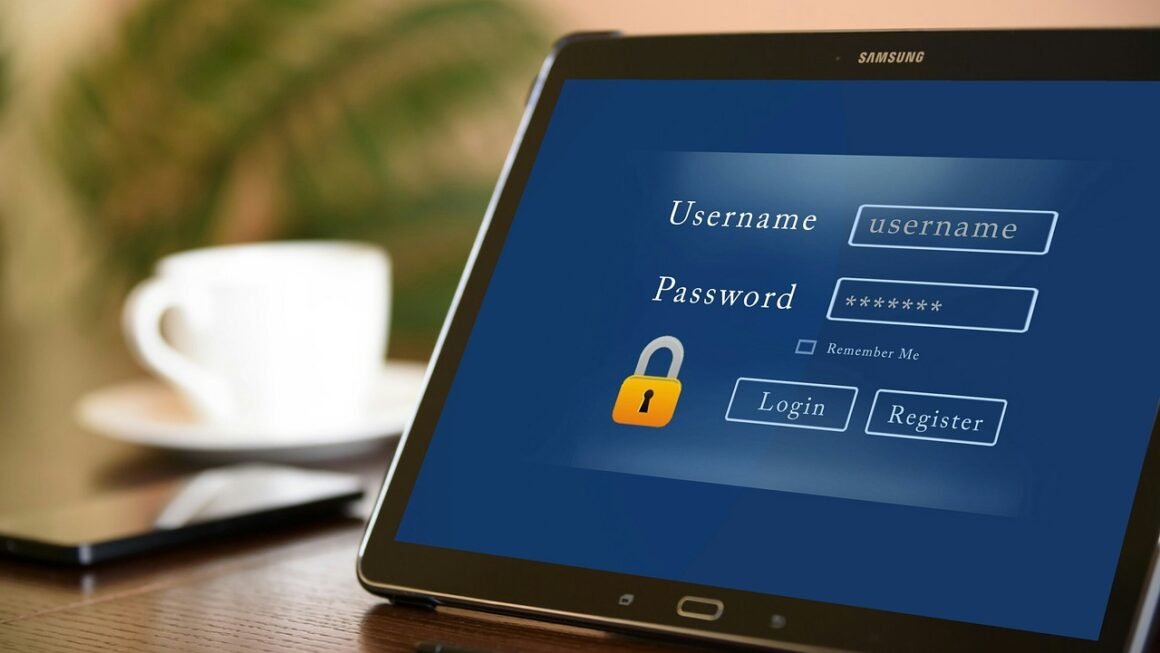In today’s interconnected world, digital threats are constantly evolving, making robust antivirus software an essential component of any comprehensive cybersecurity strategy. From safeguarding personal data to protecting business-critical systems, understanding the importance, functionality, and selection process of antivirus solutions is crucial. This guide dives deep into the world of antivirus software, providing valuable insights to help you make informed decisions and strengthen your digital defenses.
What is Antivirus Software and Why Do You Need It?
Defining Antivirus Software
Antivirus software, at its core, is a program designed to detect, prevent, and remove malicious software (malware) from your computer or device. This includes a wide array of threats, such as:
- Viruses: Programs that replicate themselves and spread to other files or devices.
- Worms: Self-replicating malware that can spread across networks without human intervention.
- Trojans: Malicious programs disguised as legitimate software.
- Spyware: Software that secretly monitors your activity and collects data.
- Adware: Software that displays unwanted advertisements.
- Ransomware: Malware that encrypts your files and demands a ransom for their decryption.
- Rootkits: Programs that hide malware from detection.
The Growing Threat Landscape
The need for antivirus software is more critical than ever. Cyber threats are becoming increasingly sophisticated and prevalent. According to a report by Cybersecurity Ventures, the global cost of cybercrime is projected to reach $10.5 trillion annually by 2025. Without adequate protection, you risk:
- Data breaches and identity theft.
- Financial losses due to ransomware attacks or fraudulent transactions.
- Damage to your reputation if you are a business.
- Loss of productivity due to malware infections.
- Compromised personal information and privacy.
Actionable Takeaway: Recognize the diverse range of threats and the increasing sophistication of cyberattacks. Understand that relying solely on safe browsing habits is not enough to guarantee protection.
How Antivirus Software Works
Scanning and Detection Methods
Antivirus software employs various techniques to identify and neutralize malware:
- Signature-based Detection: This traditional method compares files against a database of known virus signatures. If a match is found, the file is flagged as malicious. This is akin to a “wanted poster” for viruses.
- Heuristic Analysis: Heuristic analysis examines the behavior of files to identify suspicious activity that might indicate a new or unknown virus. It looks for tell-tale signs of malware, such as attempts to modify system files or connect to unusual network locations. Think of this as recognizing suspicious behavior patterns.
- Behavioral Monitoring: This real-time monitoring technique observes the actions of programs and processes running on your system. If a program starts exhibiting malicious behavior, such as encrypting files, the antivirus software will intervene to stop it.
- Sandbox Testing: Suspicious files can be run in a secure, isolated environment (a sandbox) to observe their behavior without risking harm to your system. This allows antivirus software to safely analyze potential threats.
Real-Time Protection vs. On-Demand Scanning
Antivirus software typically offers two main types of protection:
- Real-Time Protection: Continuously monitors your system for threats and automatically blocks or removes them as they are detected. This provides proactive protection against new malware infections.
- On-Demand Scanning: Allows you to manually scan specific files, folders, or your entire system for malware. This is useful for checking suspicious files or performing regular system maintenance.
Actionable Takeaway: Ensure your antivirus software has real-time protection enabled for constant, proactive defense. Regularly perform on-demand scans for an added layer of security.
Key Features to Look for in Antivirus Software
Core Antivirus Protection
The fundamental function of any antivirus software is to effectively detect and remove malware. Look for software that consistently receives high ratings in independent tests conducted by reputable organizations like AV-Test and AV-Comparatives.
Additional Security Features
Many modern antivirus solutions offer a suite of additional security features, including:
- Firewall: Monitors network traffic and blocks unauthorized access to your system.
- Web Protection: Scans websites and downloads for malicious content.
- Email Protection: Scans email attachments and links for phishing scams and malware.
- Ransomware Protection: Specifically designed to detect and prevent ransomware attacks. This often includes features like file backup and recovery.
- Vulnerability Scanning: Identifies outdated software or security flaws that could be exploited by attackers.
- Password Manager: Securely stores and manages your passwords, reducing the risk of password-related breaches.
- VPN (Virtual Private Network): Encrypts your internet traffic and masks your IP address, protecting your online privacy.
- Parental Controls: Allows you to monitor and restrict your children’s online activity.
- System Optimization Tools: May include features to clean up junk files, optimize system performance, and improve startup times.
User Interface and Ease of Use
An effective antivirus program should be easy to use and understand, even for non-technical users. A clear and intuitive interface makes it easier to manage security settings, run scans, and view reports.
Performance Impact
Antivirus software can sometimes impact system performance. Choose a solution that is lightweight and does not significantly slow down your computer. Read reviews and compare performance benchmarks before making a decision.
Actionable Takeaway: Consider your specific security needs and choose an antivirus solution with the features that are most important to you. Evaluate the user interface and performance impact before committing to a purchase.
Choosing the Right Antivirus Software
Free vs. Paid Antivirus Software
Both free and paid antivirus options are available. Free antivirus software can provide basic protection against common threats, but often lacks the advanced features and comprehensive support offered by paid versions.
- Free Antivirus: Suitable for users with basic security needs and limited budgets. Often supported by advertising or data collection.
- Paid Antivirus: Offers more comprehensive protection, advanced features, and dedicated customer support. Typically provides a more robust defense against a wider range of threats.
Comparing Antivirus Products
Before choosing an antivirus product, it’s important to do your research and compare different options. Consider the following factors:
- Independent Test Results: Check the latest test results from reputable organizations like AV-Test and AV-Comparatives to see how different antivirus products perform in real-world scenarios.
- User Reviews: Read reviews from other users to get an idea of their experiences with the software.
- Pricing and Licensing: Compare the pricing and licensing options of different products. Some products offer multi-device licenses that allow you to protect multiple computers and devices with a single subscription.
- Customer Support: Check the availability and quality of customer support. Make sure the vendor offers multiple support channels, such as phone, email, and live chat.
Consider Your Specific Needs
The best antivirus software for you will depend on your specific needs and circumstances. Consider the following factors:
- Your Operating System: Make sure the antivirus software is compatible with your operating system (Windows, macOS, Android, iOS).
- Your Usage Habits: If you frequently browse the web, download files, or use email, you’ll need a solution with robust web and email protection.
- The Number of Devices You Need to Protect: Choose a product that offers multi-device licensing if you need to protect multiple computers and devices.
Actionable Takeaway: Carefully evaluate your needs, research different options, and read independent reviews before choosing an antivirus product. Consider starting with a free trial to test the software before committing to a purchase.
Keeping Your Antivirus Software Up-to-Date
Importance of Regular Updates
Antivirus software relies on constantly updated virus definitions to detect and remove the latest threats. Outdated antivirus software is like having a shield with holes in it. Malware developers are constantly creating new viruses and variations of existing ones, so it’s essential to keep your antivirus software up-to-date.
Automatic Updates
Most antivirus programs offer automatic updates, which download and install the latest virus definitions and software updates in the background. Make sure automatic updates are enabled to ensure your system is always protected. This usually involves a simple checkbox in the settings menu.
Manual Updates
In addition to automatic updates, you can also manually check for updates. This is useful if you suspect that your antivirus software is not up-to-date or if you have disabled automatic updates. Most antivirus programs have a “Check for Updates” button or menu option.
Actionable Takeaway: Enable automatic updates for your antivirus software to ensure you always have the latest protection against emerging threats. Regularly check for updates manually as an extra precaution.
Conclusion
Choosing and maintaining the right antivirus software is a crucial step in safeguarding your digital life. By understanding how antivirus software works, the key features to look for, and the importance of regular updates, you can make informed decisions and protect yourself from the ever-evolving threat landscape. Remember to prioritize real-time protection, consider your specific needs, and always keep your software up-to-date. Don’t treat antivirus software as a one-time purchase; it’s an ongoing investment in your digital security and peace of mind.



